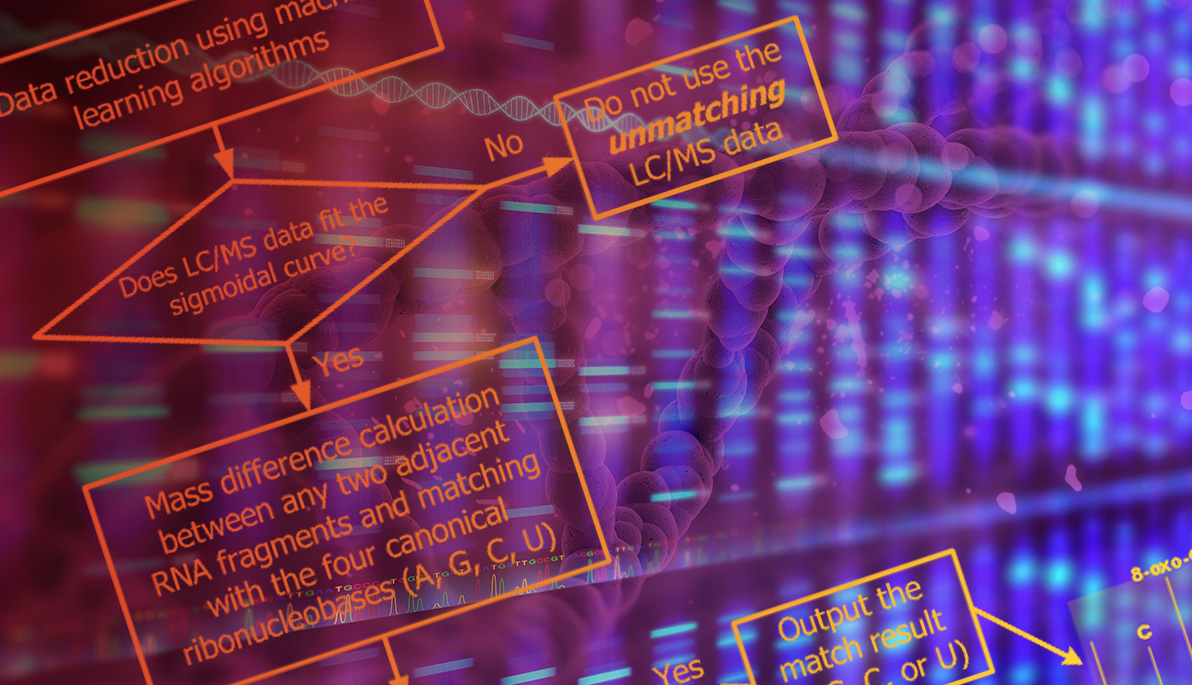
Our Genome at Risk: New Tools for Exploring RNA
September 20, 2017
Changes to RNA molecules (which contain genetic information) are linked to greater risks for disease, including cancer and diabetes. On top of that, recent evidence suggests modifications in RNA molecules are occurring at an accelerated pace—likely the result of environmental factors. This increase has far-reaching implications: One person’s RNA and their predisposition for certain diseases might impact their descendants for generations to come.
Now, faculty members at NYIT have received a grant from the National Institutes of Health’s (NIH) National Human Genome Research Institute to develop RNA sequencing methods that can be used to analyze RNA modifications in human, animal, and bacterial cells. Scientists can use information gained using these new tools to study how environmental and biological factors might affect the human genome when it comes to serious diseases like cancer and diabetes.
Shenglong Zhang, Ph.D., assistant professor at NYIT College of Arts and Sciences and Wenjia Li, Ph.D., assistant professor at NYIT School of Engineering and Computing Sciences, are the recipients of the prestigious research award, which totals $568,000 over three years.
“Damage to our DNA and RNA caused by a toxic environment is incremental and not observable,” said Li. “Nevertheless,” he added, “it may be inheritable. Recent studies in epigenetics provide a lot of evidence that environmental change may be leaving its mark on our genome.”
RNA modifications are closely linked to major conditions like breast cancer, type 2 diabetes, and obesity. More than 100 RNA modifications have already been identified, but there may be others. To have a thorough understanding of these changes, scientists need to be able to identify and measure RNA modifications, but to do so requires a reliable and accurate method for scientists to discern and analyze how these chemical changes function within the cell. Zhang and Li hope to solve that problem.
Their research also has more wide-reaching potential. As scientists learn more about RNA modifications, further work connecting these changes to environmental conditions can inform policymakers, scientists, and practitioners so that they can better manage environmental impacts on the human genome.
Li and Zhang bring an innovative, interdisciplinary approach to their task. Scientists have long been able to use mass spectrometry (MS) to uncover modifications in proteins, but MS results alone cannot clearly reveal the identity and position of RNA modifications. To successfully sequence the RNA, Li and Zhang will combine MS with liquid chromatography (LC) and apply to these results an algorithm they developed. “The RNA data resulting from MS are complex, but our algorithm can exploit predictable regularities in LC separation to simplify the data,” said Li. “One of the advantages of our method is that it can identify, locate, and quantify a broad spectrum of RNA modifications that other methods are not capable of,” added Zhang.
Life Science Department Chair Niharika Nath, Ph.D., is enthusiastic about the potential for this research. “Li and Zhang’s RNA sequencing method could become a robust, easy-to-use, and broadly applicable tool,” she said. “Not only would it be effective, but it would also work well with other tools already in use, such as Next Generation Sequencing (NGS) technology.”
Nada Anid, Ph.D., dean of the School of Engineering and Computing Sciences, said that this NIH grant, in addition to advancing basic science, will benefit NYIT undergraduate and graduate students over the next three years. “The development of new sequencing tools provides an ideal opportunity for student research and skills training across multiple disciplines, and prepares them for the U.S. science and technology-based economy,” she said. The research team will seek to communicate their results to the scientific community through conference presentations, patents, and peer-reviewed publications.
More Features

An Alumnus’ Commitment to the Environment
As an energy management graduate from New York Tech’s Vancouver campus, Jasdeep Gulati (M.S. ’22) is highly invested in educating people about environmental and climate sustainability.

Vancouver Faculty Win University-Sponsored Research Awards in New Program
The new Global Impact Research Grant (GIRG) program has been developed to keep Vancouver-based faculty connected to faculty and research projects being conducted on the university’s New York campuses.

Studying Climate Change One Degree at a Time
Junhua Qu (M.S. ’24) began her collegiate journey in Beijing. But, her interest in climate change took her to New York Tech’s Vancouver campus to study energy management.
